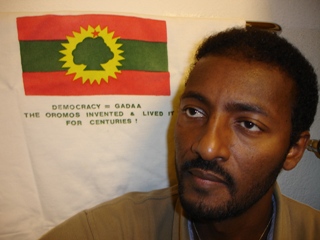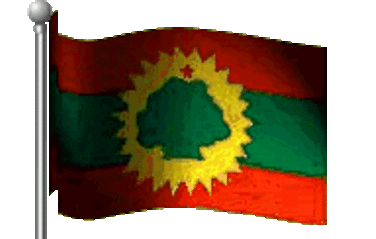Ethiopia: Military Commits Atrocities against Anuak Civilian
Harvard Law School - Human Rights Program
FOR IMMEDIATE RELEASE
Ethiopia: Military Commits Atrocities against Anuak Civilians
Retaliatory Attacks Also Kill Highlanders in Gambella Region
(Cambridge, MA, December 13, 2006) – Soldiers in the Ethiopian military have killed, raped, and otherwise abused hundreds of Anuak civilians in the Gambella region of the country, the International Human Rights Clinic ( IHRC ) of Harvard Law School’s Human Rights Program said today.
The IHRC is releasing a report tomorrow entitled “We are now hoping for death”: Violence and Grave Human Rights Abuses in Gambella, Ethiopia. It documents potential war crimes and crimes against humanity committed by Ethiopian National Defense Forces ( ENDF ). It also examines retaliatory attacks by armed Anuaks on the non-indigenous “highlanders.”
“Life in Gambella has become unbearable for civilians—regardless of the color of their skin,” the report says. “The brutal treatment of Anuak and highlanders by both the military and rebel forces ignores the international law protecting those civilians, and subjects them to atrocious treatment accompanied of rape, killing, beating, and torture.”
The IHRC report comes out on the third anniversary of the December 13 to 15, 2003, massacre in Gambella town that sparked this ethnic conflict. That week an armed group of alleged Anuak rebels attacked a convoy of highlanders, killing eight and mutilating the bodies. The ENDF responded brutally to the attacks, killing more than 400 Anuak civilians and burning 400 homes to the ground in a period of 72 hours.
Since then, the violence has continued. Today, armed members of another ethnic group, the Nuer, reportedly beat and killed children at an elementary school in Gambella town, showing the spread of the conflict. The IHRC report focuses on events in 2005 and 2006.
According to the report, the ENDF’s abuses have included regularly gunning down young Anuak men accused of being rebels and raping women on the roads outside of town. Seven soldiers raped one woman and then detained her husband who tried to stop the crime, beating him every day for a week. The ENDF’s culture of impunity has allowed the violence to go unchecked.
In addition to causing bodily harm, the ENDF has interfered with the livelihoods of this agrarian region and created a climate of fear.
“Because of frequent ENDF attacks on the outskirts of towns, Anuak civilians have feared tending farms, collecting wood from the forest, traveling to and from school, and gathering water from the river or watering pump,” the report said.
Armed Anuaks, who were in at least some cases rebel troops, have conducted retaliatory raids on highlander villages. In one case, for example, they beheaded five shepherds, and in another they burned a mother and several children alive.
The atrocities on both sides violated the most basic standards of humanity and breached international law. As the conflict has escalated into a traditional armed conflict, the violations have approached the level of war crimes under international humanitarian law. They have also been indicative of crimes against humanity under customary international criminal law, which prohibits widespread or systematic attacks directed toward a civilian population. Finally, they have violated basic human rights, such as due process and freedom from torture.
In 2005 to 2006, the IHRC report documented, the conflict evolved in nature in some ways. The ENDF took certain steps, such as rotating out troops and closing certain outposts, to address earlier international criticism of its abuses. Meanwhile, the Anuak rebels seemed to reduce their attacks on highlander populations, focusing instead on threatening or directly assaulting Ethiopian government officials and ENDF forces.
Nevertheless, both sides continue to commit unacceptable and illegal acts of violence.
News Category: East Africa



0 Comments:
Post a Comment
<< Home